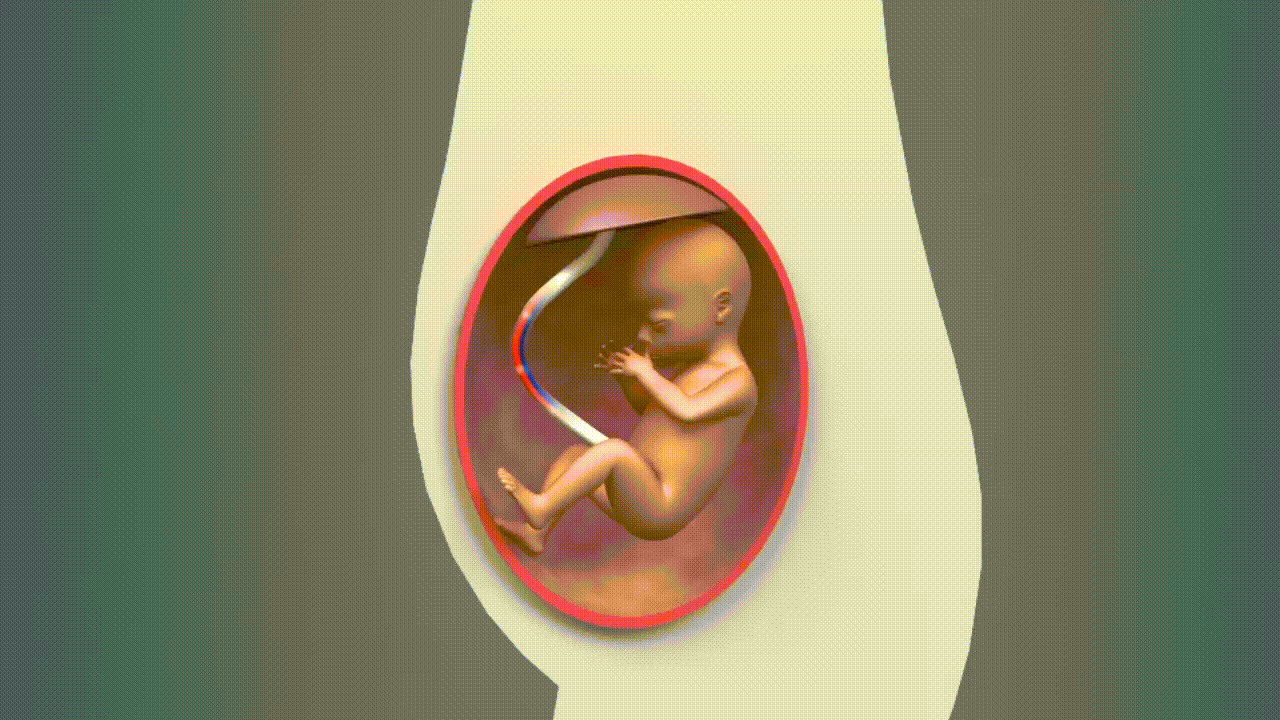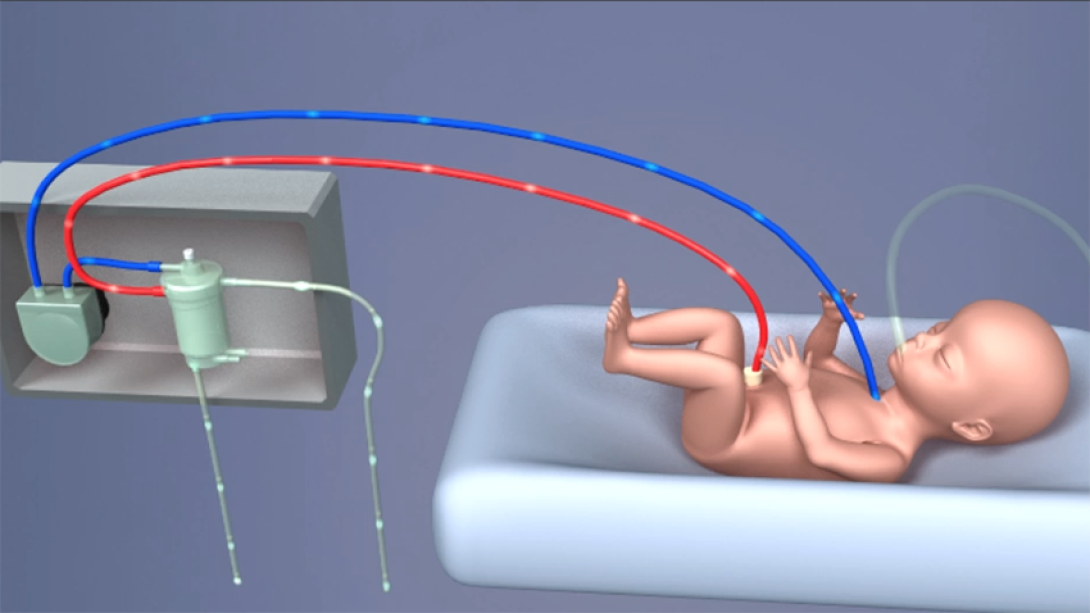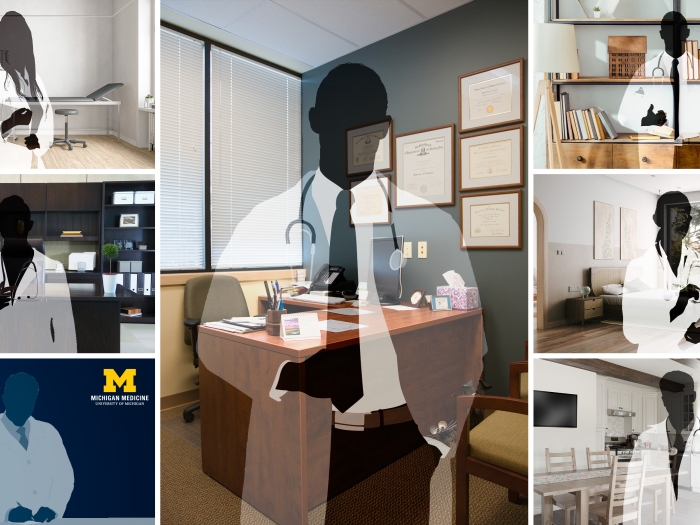U-M researchers make progress on extraordinary new artificial womb technology that could one day help extremely premature babies continue to develop outside the womb.
6:00 AM
Author |

An out-of-body artificial placenta that mimics the womb saved premature lambs from lung failure and protected their brain development until they transitioned to mechanical ventilation, new research from Michigan Medicine shows.
MORE FROM THE LAB: Subscribe to our weekly newsletter
The lambs in one experiment lived up to 16 days.
The data, presented at the American Academy of Pediatrics national conference, reflect significant milestones in the artificial placenta project at University of Michigan's C.S. Mott Children's Hospital that aims to revolutionize the treatment of extreme prematurity.
The technology simulates the intrauterine environment and provides gas exchange without mechanical ventilation. Based on the success of the experimental work, researchers anticipate a clinical trial within five years.
The goal is to help the tiniest premature babies with the greatest risks of disability or death continue critical organ development outside of the mother's womb until their bodies are ready to breathe air regularly.
Although many current therapies addressing prematurity are lifesaving, they may contribute to complications because undeveloped lungs are often too fragile to handle even the gentlest ventilation techniques.
"The most common problem for premature babies is respiratory distress, but we know that mechanical ventilation, even for a very short period of time, puts infants with underdeveloped lungs at risk of lung and brain injury," says presenter Joe Church, M.D., a postdoctoral research fellow at Mott and U-M's Extracorporeal Circulation Research Laboratory.
"These findings are very promising, suggesting that our technology is protective of the lungs and brain development in premature animals."
Our goal is to improve the outcomes of extremely premature babies by re-creating the intrauterine environment so that critical organs are protected and develop outside of the womb.George Mychaliska, M.D.
Progress toward revolutionizing premature infant care
Led by Mott pediatric and fetal surgeon George Mychaliska, M.D., the artificial placenta project, funded by the National Institutes of Health, is taking place in the lab of U-M's Robert Bartlett, M.D.
SEE ALSO: Artificial Placenta Holds Promise for Extremely Premature Infants
Bartlett is known as the "father of ECMO" for developing the extracorporeal membrane oxygenation technology that works as a heart and lung machine for a prolonged period in patients with heart and lung failure.
The artificial womb uses ECMO technology in a novel way that allows the baby to breathe a simulated amniotic fluid, as it would in the uterus. Oxygenated blood flows into the umbilical vein, and deoxygenated blood drains from the right heart.
About 30,000 babies are born younger than 26 weeks old in the United States each year. These extremely premature babies not only have smaller survival rates but also are at higher risk of severe disabilities, including lung disease and cerebral palsy.
Severely immature lungs cannot provide the brain, heart and other organs the oxygen they need to survive.
Compared with current options, "a mechanical artificial placenta would allow a premature infant to grow and thrive while avoiding the many complications associated with conventional treatment," says Mychaliska.
"Our goal is to improve the outcomes of extremely premature babies by re-creating the intrauterine environment so that critical organs are protected and develop outside of the womb," he says.
"This would be a complete paradigm shift in treating prematurity. We continue to make progress toward developing an artificial placenta that would revolutionize the care of premature infants."


Explore a variety of health care news & stories by visiting the Health Lab home page for more articles.

Department of Communication at Michigan Medicine
Want top health & research news weekly? Sign up for Health Lab’s newsletters today!





